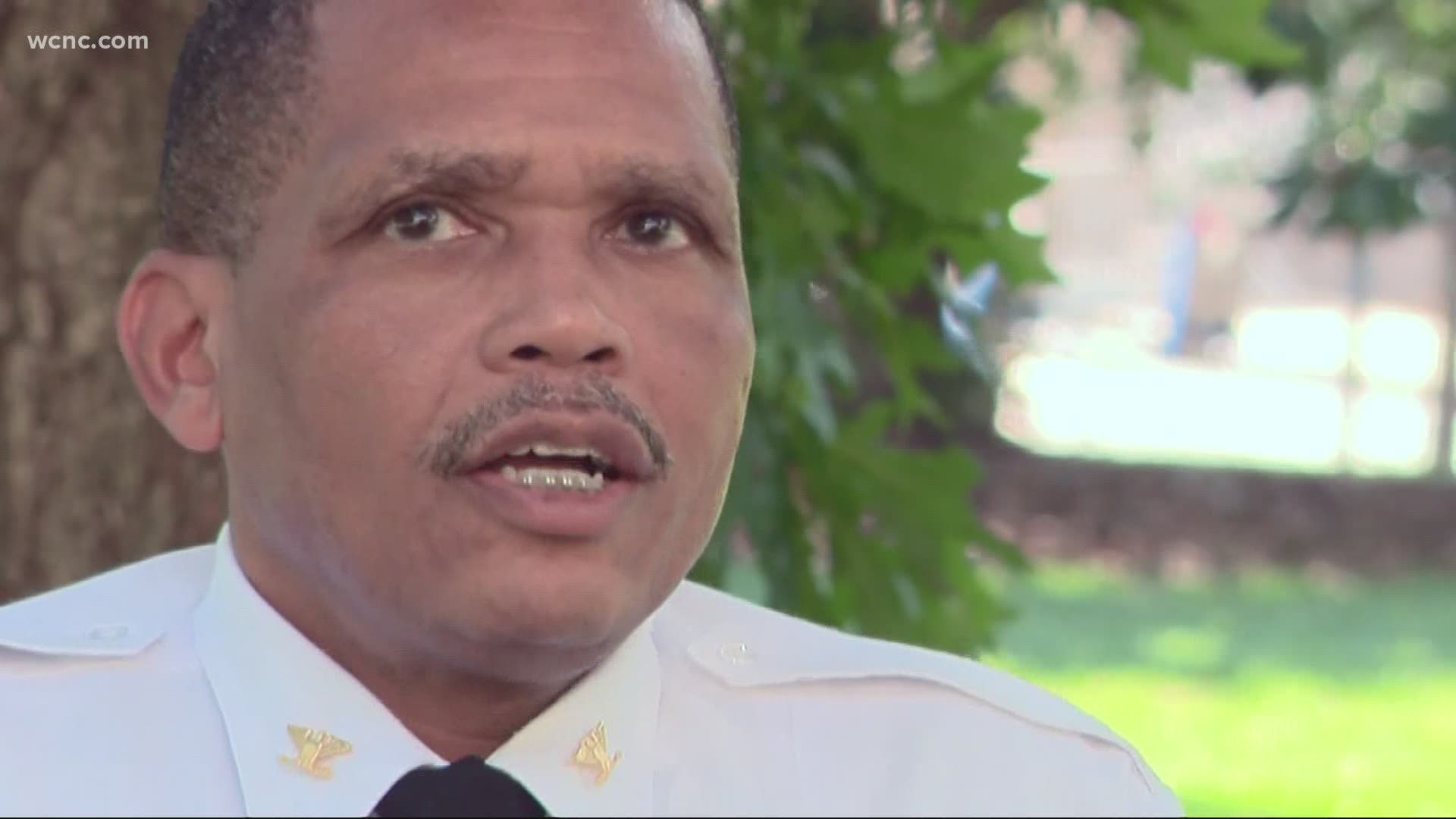CHARLOTTE, N.C. — From disproportionate traffic stops for black men to weeding out racist officers, use of force to a picture of him kneeling with his fist in the air, incoming Charlotte-Mecklenburg Police Department Chief Johnny Jennings answered a wide range of questions Friday. His one-on-one interview with WCNC Charlotte comes just days before he officially succeeds Chief Kerr Putney on July 1.
The new police chief has 28 years' experience with CMPD. It's the only law enforcement job he's ever held.
During his career, he said he's never used deadly force, despite previously being in fear for his life. While he's had people pull guns on him, he said they never pointed a gun at him.
"I've always been one that (believes in) the concept of just because you can do something legally, does not mean you have to do something," he said. "In the situations that I've been in, I could have easily responded with deadly force, but I've been fortunate to be able to subdue them physically without having to be put in that situation. To be honest with you, these things happen so fast that my reaction was to avoid the use of that weapon against me, but at the same time, you do always have to look back and say, was that the right thing?"
A WCNC Charlotte analysis of CMPD traffic stop data previously showed the department continues to stop, search and arrest Black men more frequently than their white counterparts.
"Are you ok with that?" we asked him.
"I understand it. I wish we could do better and that's one of the things that I want to look at and I'll tell you why, because we've always looked at high crime areas, and in those high crime areas, and I've been guilty of it as a division captain years ago, we take a no-tolerance approach in these areas because they're dealing with certain criminal activity. We're going to go in and make traffic stops, we're going to get out with people and make drug arrests, we're going to do certain things to show our presence in those areas, but our presence does not have to be enforcement all the time. Yeah, I think there are some things we can do better and change in that aspect."
He said he plans to change the expectations of officers.
"I have to rely on them to put forth my vision," he said.
During our 10-minute interview Friday, improvement remained a key talking point, especially following the murder of George Floyd in Minneapolis. A photographer captured Chief Jennings kneeling with his right fist held high during a recent march.
"That was in solidarity against what happened in Minneapolis," he said. "I haven't spoken or talked with any officer or any police chief in the country that's okay with what they saw in Minneapolis, so my gesture was simply a show of solidarity that we don't agree with this either. People have to realize that when we saw this as police officers, it made us sick to our stomachs also and that's all that was and I hope that people understand that that's what my goal was to say that, 'Hey, we're here with you, we disagree with that as well and we're looking to improve and get better as well from that.'"
He also expects the department to do a better job of identifying potentially racist officers, like those outed this week in Wilmington, through continued screenings and quick action once identified.
"We have to be able to identify those initially. We don't even want to hire officers that have those biases coming in," he said. "It's not a perfect system, it never will be, so when we see that happening and when we identify that we have to take action quickly."
He told us he wants to do a better job working with the NAACP as well. The organization's president recently shared her frustration about a breakdown in communication with CMPD well before George Floyd's murder.
"I think we have an understanding and I have a good relationship with the NAACP and the fact that we know that there are going to be differences and disagreements, however, we also know that we have the same goal that we need to work together," he said. "That's our challenge that we come together and we can set a good example for the entire community that whether you disagree or not, you know that you can work together toward a common goal."

